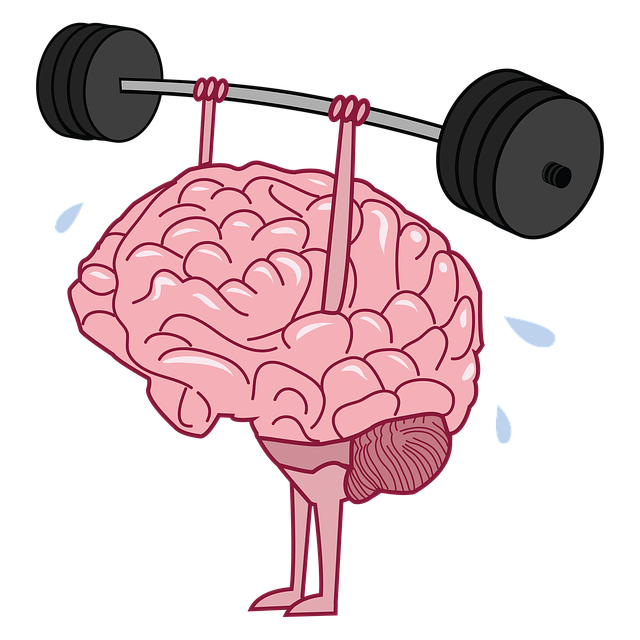Understanding mental illness diagnoses involves a comprehensive assessment by healthcare professionals, leading to tailored therapy options like Longmont Cognitive Behavioral Therapy (CBT). CBT focuses on identifying and changing negative thought patterns, building emotional intelligence, and cultivating positive thinking habits. It combines with holistic practices such as mindfulness, exercise, and support groups for enhanced mental well-being. A strong support network, including understanding individuals and mental health professionals with cultural competency training, is vital for recovery. Self-care through techniques like journaling and relaxation complements CBT, empowering individuals to proactively manage their mental health in Longmont.
Mental illness diagnoses can be complex, but navigating treatment options doesn’t have to be. This comprehensive guide explores understanding mental illness diagnoses, leveraging Longmont Cognitive Behavioral Therapy (CBT) as a powerful tool, and mastering treatment navigation. We delve into various therapy types, medication management, building a supportive network, and essential self-care strategies for optimal mental wellbeing. By the end, you’ll be equipped to chart a clear path towards recovery.
- Understanding Mental Illness Diagnoses: Uncovering the Process
- Longmont Cognitive Behavioral Therapy (CBT): A Comprehensive Approach
- Navigating Treatment Options: Medication, Therapy, and Beyond
- Building a Supportive Network for Recovery
- Self-Care Strategies for Effective Mental Wellbeing
Understanding Mental Illness Diagnoses: Uncovering the Process

Understanding Mental Illness Diagnoses: Uncovering the Process
Navigating mental illness diagnoses can feel like a complex labyrinth, but with the right guidance, it becomes a journey toward healing and recovery. The process typically starts with an assessment conducted by a qualified healthcare professional, often a psychologist or psychiatrist, who employs various tools and techniques to gain insight into an individual’s symptoms, thoughts, feelings, and behaviors. This may include in-depth conversations, standardized questionnaires, and observations. In Longmont, cognitive behavioral therapy (CBT), a highly effective approach, is often the cornerstone of treatment for anxiety relief and other mental health concerns.
The assessment aims to identify not just a specific disorder but also its underlying causes and contributing factors. Once a diagnosis is made, based on established criteria outlined in diagnostic manuals like the DSM-5, individuals can begin exploring tailored therapy options. Incorporating emotional intelligence skills into therapy has proven beneficial for enhancing coping mechanisms and fostering resilience. Moreover, mental health policy analysis and advocacy play a crucial role in ensuring accessible and effective treatment paths for those seeking assistance.
Longmont Cognitive Behavioral Therapy (CBT): A Comprehensive Approach

Longmont Cognitive Behavioral Therapy (CBT) offers a comprehensive approach to mental health treatment, focusing on identifying and changing negative thought patterns and behaviors that contribute to emotional distress. This evidence-based therapy is designed to help individuals develop coping strategies, build resilience, and cultivate positive thinking habits. Through CBT, clients learn to challenge distorted beliefs, set realistic goals, and gain a sense of control over their lives, leading to improved mental well-being and increased confidence.
In the context of navigating diagnosis and treatment, Longmont CBT provides crucial crisis intervention guidance, assisting individuals in managing acute stress and anxiety. By empowering patients with practical tools for emotional regulation, this therapy facilitates self-discovery and personal growth. The goal is not just to alleviate symptoms but to foster long-lasting positive changes, enabling clients to lead more fulfilling lives with enhanced coping mechanisms and a renewed outlook on challenges.
Navigating Treatment Options: Medication, Therapy, and Beyond

Navigating treatment options can be a complex task for anyone facing mental illness. While medication often plays a crucial role in managing symptoms, it’s just one piece of the puzzle. Longmont Cognitive Behavioral Therapy (CBT) stands out as an effective approach, focusing on identifying and changing negative thought patterns and behaviors. This form of therapy empowers individuals to develop coping strategies, improve self-esteem, and build empathy for themselves and others.
Beyond medication and CBT, a holistic approach to treatment often includes self-care practices tailored to individual needs. Techniques such as mindfulness meditation, regular exercise, and maintaining a balanced diet can significantly enhance mental well-being. Additionally, support groups or one-on-one counseling sessions can foster a sense of community and provide valuable empathy building strategies, crucial for navigating the complexities of mental health journeys.
Building a Supportive Network for Recovery

Building a supportive network is an integral part of navigating mental illness and fostering recovery. This involves surrounding oneself with understanding and empathetic individuals who can offer both emotional support and practical assistance throughout the healing process. Longmont Cognitive Behavioral Therapy (CBT) emphasizes the importance of social connections in enhancing therapeutic outcomes, as it provides clients with coping strategies to manage symptoms and build resilience.
A strong support network can be tailored to each individual’s needs, including family, friends, support groups, and mental health professionals. Mental health professionals play a crucial role in guiding individuals through the process, offering risk assessments to identify potential hazards and providing resources for effective stress management. Healthcare provider cultural competency training ensures that these professionals are equipped to address diverse needs, fostering an environment where everyone feels heard, respected, and supported on their journey to recovery.
Self-Care Strategies for Effective Mental Wellbeing

In navigating mental illness, self-care plays a pivotal role in managing and improving one’s mental wellbeing. Longmont Cognitive Behavioral Therapy (CBT) emphasizes the importance of adopting healthy coping skills for daily life. This involves practicing mindfulness techniques to stay present and grounded, engaging in regular physical activity to boost mood and reduce stress, and prioritizing adequate sleep to support overall mental health. Incorporating self-awareness exercises can help individuals gain insights into their thoughts and emotions, fostering a deeper understanding of themselves and enabling them to make informed decisions about their mental wellness.
Additionally, developing coping skills through therapy and coaching programs is crucial. Mental wellness coaching can provide tailored strategies for managing stress, anxiety, or depression. These programs often include techniques such as journaling, relaxation practices, and cognitive reframing, all of which contribute to enhanced self-care and improved mental resilience. By integrating these self-care strategies into daily routines, individuals can effectively support their mental wellbeing, complementing professional treatment approaches like CBT.
Navigating mental illness can be a complex journey, but with the right tools and support, individuals can find their path to recovery. By understanding the diagnostic process, exploring evidence-based treatments like Longmont Cognitive Behavioral Therapy, and building a strong support network, one can effectively manage their mental health. Remember, self-care is paramount, and incorporating strategies that promote mental wellbeing can significantly enhance overall life quality.













